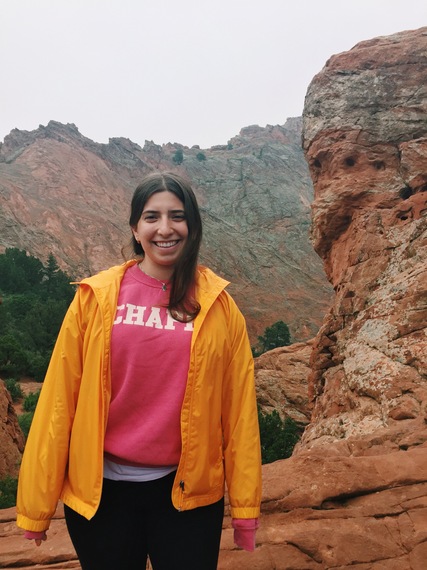By Rebecca Shaevitz
In third grade, my curious eye helped me catch a seemingly innocent, but unsettling dichotomy. All the black girls were in the step class. All the white girls were in ballet or tap. My desire to join the step class further exacerbated my confusion over this self-segregation. But I also recognized a line that I wasn't supposed to cross. It was the first time I recognized my desire to understand complexities in my world as an innate part of my identity.
Since third grade, I've embraced opportunities to engage with varying perspectives and to understand difference in my world. In ninth grade I travelled with my temple youth group to Selma, Alabama for three days to learn about the Civil Rights Movement. We met with Joanne Bland, a civil rights activist and the youngest person to march on Bloody Sunday in 1965. We marched with Joanne across the Edmund Pettus Bridge and as we reflected on the events of such a monumental day, she told us her story. She ended by saying, "As a human being, it is your responsibility to fix the world's problems. Each of you must make a difference." I pondered what I would have done had I been there; I hope I'd have marched alongside Joanne but I have no real way of knowing.
After these events, I once again found myself considering my place and whether or not I could be proud of my actions. I became aware that just as my New York City liberal upbringing has shaped me, those who have differing perspectives from my own were also shaped by their cultures. I grew weary of the anti-conservative rhetoric that permeated my academic environment. While I agreed with my peers' social views, the condemnation of the other side made me feel as if I was denying myself the opportunity to understand other people. I had no expectation of assuming the perspectives of the "other" but I hoped to comprehend how their experiences had shaped them. Joanne had asked each of us to make a difference. The difference I would make, I decided, was to bridge a gap between my life and the lives of people from backgrounds far different from my own.
My desire to connect with the "other" motivated me to travel to the South this summer on Etgar 36, an educational program which brings Jewish students to activists on all sides of major social and political issues. Discussing abortion or gun control with a Pro-Life activist or an NRA representative was difficult because these individuals were so removed from my own understanding of these issues. However, this distance made my determination to understand the other person and the other perspective much stronger. As my self awareness grew, so did my discomfort at my limited experiences. It was difficult to look inwards and realize that just as the "other" struggles to understand me, my own experiences or lack thereof can be roadblocks to understanding them. However, while I didn't see eye to eye with the activists, I walked away having pushed myself to engage them.
I will continue to uncover my own prejudices in the hopes of building bridges with those who are removed from my reality. My curiosity provides both a lens through which to view myself and a basis for forming relationships with others. My desire to understand the complexities of my world began in third grade at a time when I didn't have the vocabulary to address my confusion. Today, with the help of Joanne's message, I know that the differences I face can be overcome with an open mind and a willingness to ask difficult questions.
Rebecca Shaevitz, a 2016 graduate of The Dalton School, is a freshman at Washington University in St. Louis.
